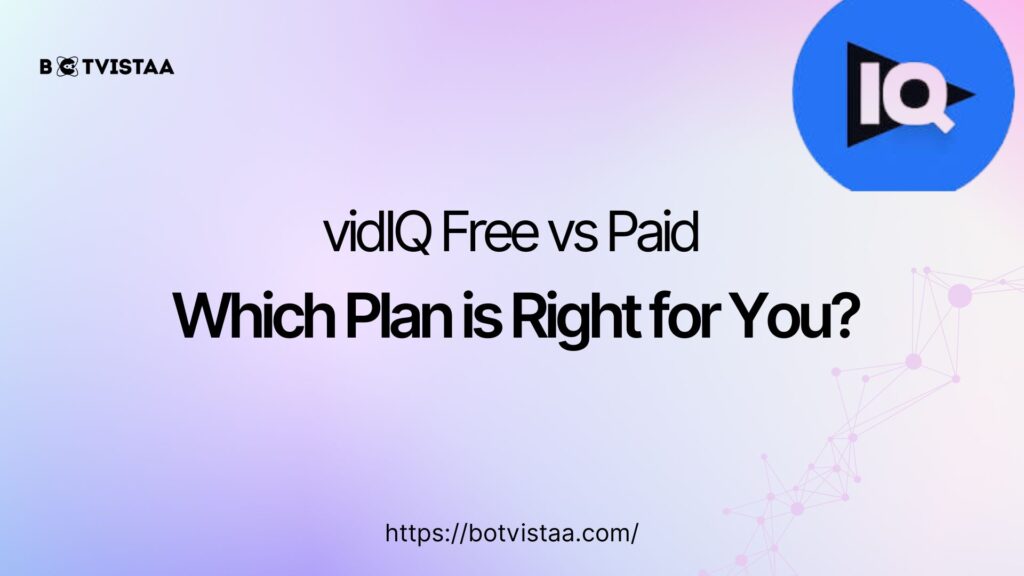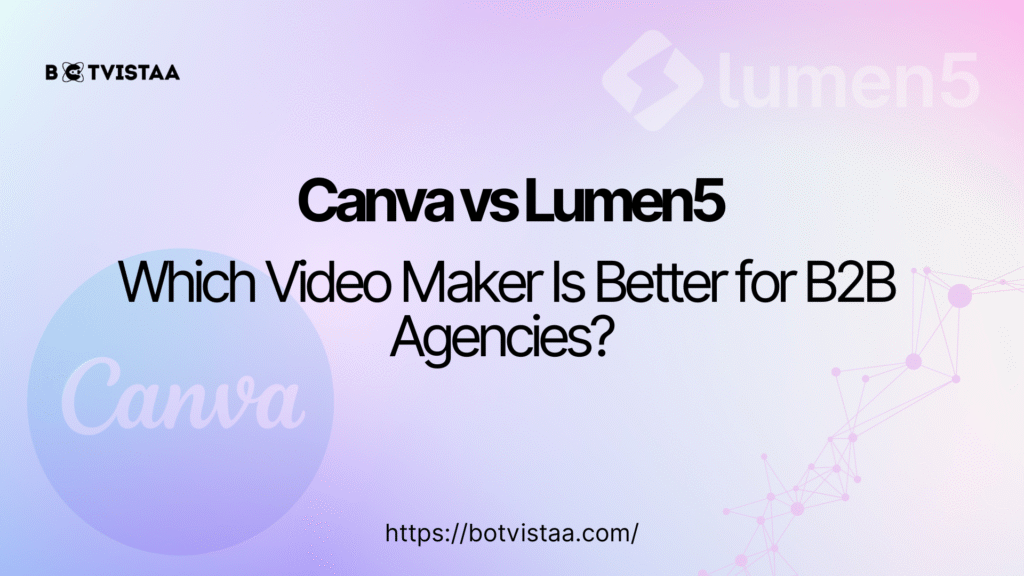Lorem ipsum dolor sit amet, consectetur adipiscing elit. Ut elit tellus, luctus nec ullamcorper mattis, pulvinar dapibus leo.
- Best AI Tools For Automation
ElevenLabs Voice Cloning: Fast, Easy & Realistic (Instant vs Professional Review)
Jump To
When you purchase through links on our site, we may earn an affiliate commission. Here’s how it works.
Is voice cloning with ElevenLabs fast and easy?
Instant Voice Cloning (IVC)
Creates a clone in minutes using 30–120 seconds of speech
Simple setup, works well for short content
Best for quick demos, social clips, or testing ideas
Professional Voice Cloning (PVC)
Needs 30 minutes–2 hours of clear audio
Training takes 2–6 hours
Produces near-perfect, studio-quality voices
Best for audiobooks, dubbing, ads, and long podcasts
Key Difference: IVC is faster and easier, while PVC takes longer but delivers higher accuracy and realism.
AI voice cloning has moved from experimental labs into everyday use and ElevenLabs is at the center of it. With its advanced voice cloning AI, anyone can now clone their voice or design custom synthetic voices that sound natural, emotional, and convincing.
The platform gives you two clear paths:
- Instant Voice Cloning (IVC) for quick results using short audio samples.
- Professional Voice Cloning (PVC) for studio-grade replicas built from longer, high-quality recordings.
This technology goes far beyond simple text-to-speech. ElevenLabs voice cloner tools preserve tone, inflection, and rhythm so closely that many listeners can’t tell the difference between the original and the AI voice clone.
That’s why it’s quickly becoming popular among YouTubers, podcasters, audiobook publishers, educators, and even businesses looking to scale content.
But with new power comes new questions:
- How do you clone your voice with ElevenLabs?
- What’s the real difference between Instant and Professional voice cloning?
- Is ElevenLabs free voice cloning good enough, or should you pay for the higher tiers?
- How safe is it to use an AI voice cloner, and what protections are in place?
In this guide, we’ll explore those questions in detail, comparing features, pricing, use cases, and common mistakes to avoid.
You’ll also see insights from real users, video case studies, and expert commentary to help you decide whether voice cloning AI is right for you.
Turn Your Script Into a Voiceover in 5 Minutes
Skip the mic, skip the retakes, and get professional-quality audio ready for YouTube or TikTok today.
What is ElevenLabs Voice Cloning and Why Does It Matter?
Voice cloning means making a digital copy of a person’s voice using AI. Unlike the old robotic text-to-speech tools, modern AI voice cloning can catch the little things that make a voice sound real, like pitch, tone, speed, and even emotion.
The result is a voice copy that sounds so close to the real one that most people can’t tell the difference.
ElevenLabs voice cloning
ElevenLabs has become the most popular platform in this space. Known for its natural-sounding voices and advanced voice cloner AI, it allows anyone to:
- Clone your voice instantly using a short recording.
- Build professional-grade AI voice clones with longer, high-quality samples.
- Create custom voices for narration, entertainment, education, or business.
Why is Voice Cloning Becoming Popular?
Because content today is global, fast, and demanding. With ElevenLabs, creators, podcasters, audiobook publishers, marketers, and even educators can:
- Save time by generating hours of spoken content in minutes.
- Reach wider audiences with multilingual voice cloning AI.
- Build a consistent brand voice across YouTube, podcasts, and business training.
- Experiment creatively — from fun personal projects like “clone my voice AI” to professional content for scale.
That’s why ElevenLabs has become the go-to AI voice cloner for individuals and businesses. It transforms voice from a limitation into an asset, letting you scale, customize, and experiment with sound at a level never possible before.
You Know What?
Most people still assume voice cloning is only for big studios or tech giants. In reality, even a 10-second audio clip is enough to start creating a convincing AI-generated voice with ElevenLabs. That’s why so many independent creators are leading the charge.
How Does Instant Voice Cloning (IVC) Work?

Instant Voice Cloning (IVC) is ElevenLabs’ fastest way to create an AI-generated voice that sounds like you.
Instead of long training data, it only needs a short audio sample, usually 30 seconds to 2 minutes of clear speech. Once you upload the clip, the platform processes it in a few minutes and generates a ready-to-use cloned voice.
What is the Step-by-Step Process of Instant Voice Cloning

- Record or upload audio: Speak naturally for at least 30 seconds. A clip under 2 minutes is enough.
- AI processing: ElevenLabs analyzes pitch, tone, pacing, and accent to create a digital voice profile.
- Voice ready to use: Within minutes, you can generate text-to-speech in your own cloned voice.
This makes IVC ideal for quick demos, YouTube intros, podcasts, short content pieces, or multilingual experiments. You don’t need hours of studio recordings to get a voice that feels personal and natural.
How Should You Set Stability, Similarity, and Style for IVC?
ElevenLabs gives you three sliders to fine-tune your cloned voice:
- Stability (35–75 is the sweet spot):
Lower values add more emotion and variability; higher values make the voice flatter and robotic. - Similarity (keep under 80):
Controls how strictly the voice follows your sample. Too high can reduce natural flow. - Style (~50 works best):
A balanced setting makes the voice expressive without overdoing it.
PRO TIP
Start with Stability around 50, Similarity at 75, and Style at 50. Then adjust based on whether you want more emotion, closer accuracy, or smoother delivery.
Mistakes You Should Avoid with Instant Voice Cloning
Many users ruin their first attempts by ignoring basic recording rules. Here are the top mistakes to avoid:
- Using a poor-quality microphone → Low-end mics create muffled voices the AI can’t replicate well.
- Recording in a noisy room → Background sounds confuse the AI model. Record in a quiet space.
- Speaking too inconsistently → Switching tones, accents, or pacing mid-sample makes the voice less stable.
- Uploading too short or unclear audio → Stay closer to 1–2 minutes for best accuracy.
For creators, businesses, and educators, Instant Voice Cloning saves time while maintaining a personal sound. You can keep your own voice consistent across content, localize it into other languages, and test new formats without studio costs.
How Does Professional Voice Cloning (PVC) Work?
Professional Voice Cloning (PVC) with ElevenLabs is designed for creators, businesses, and studios who need authentic, production-ready AI voices.
Unlike Instant Voice Cloning, which gives a quick copy with limited accuracy, PVC uses a larger dataset, stricter verification, and longer training time to produce a digital voice that’s virtually indistinguishable from the real speaker.
PVC follows a structured process:
1. Audio Requirements: What You Need to Start
The quality of the dataset directly determines how realistic your cloned voice will sound.
- Minimum Requirement: 30 minutes of clean audio
- Optimal Dataset: 2–3 hours of recorded speech
- Why? More data gives the AI model enough range to capture intonation, pacing, and emotional variety.
For example, a 30-minute dataset may be fine for narration, but if you want your cloned voice to handle audiobooks, commercials, or multilingual content, 2–3 hours ensures better performance.
You Know What?
Many users make the mistake of uploading short, podcast-style clips and wonder why their cloned voice sounds flat. The AI doesn’t just need words, it needs context, tone, and variation.
2. Processing Time: How Long Does It Take
Unlike Instant Cloning, PVC models aren’t generated instantly. ElevenLabs processes them in batch cycles, which means training your voice can take
- Standard Timeframe: 2–6 hours, depending on file size and clarity
- Cloud-Based Training: No need for heavy local hardware; ElevenLabs handles everything
- Output: A trained voice model that can be used across audiobooks, ads, podcasts, or dubbing with much higher stability compared to Instant Voice Cloning
You Know What?
A Redditor pointed out that ElevenLabs runs monthly training batches, so if you just missed a cycle, you could be waiting the full stretch. That’s an important planning context for podcasters and authors with deadlines.
3. How PVC Work: Step by Step

The PVC process is user-friendly but secure:
- Upload your audio – Provide your dataset in lossless WAV format
- Identity verification – Record a short live audio clip. This prevents misuse (e.g., cloning celebrity voices or unauthorized impersonation)
- Model training – ElevenLabs processes the dataset, learns your vocal patterns, and builds your digital voice model
Voice ready to use – You can generate text-to-speech with natural variation and consistent quality
What Equipment Do You Need for Professional Voice Cloning?
To get studio-quality results, you need more than just a laptop mic. Proper gear ensures clean input, which directly impacts output quality.
- Microphone: A condenser mic (e.g., Audio-Technica AT2020 or Shure SM7B) captures voice detail and warmth
- Pop Filter: Reduces plosives (hard “p” and “b” sounds) that can distort training data
- DAW (Digital Audio Workstation): Software like Audacity (free), Adobe Audition, or Reaper to manage recording sessions
Technical requirements:
- File format: Lossless WAV
- Sample rate: 44.1 kHz or 48 kHz
- Upload limit: 1.5GB per voice
PRO TIP
Record in a quiet room with minimal reverb. Even the best AI model can’t “unlearn” background hums or echoes from poor recordings.
How Can You Improve Quality with PVC?
Even with high-quality gear, recording technique matters. Here are some ways to maximize the results:
- Consistency is everything → Record in the same environment with the same mic setup
- Use natural speech with variation → Mix conversational tone, emphasis, and emotion (monotone datasets = monotone voices)
- Avoid heavily edited clips → Don’t overuse noise reduction or compression, as the AI needs raw voice patterns
Example: If you’re creating a PVC voice for audiobooks, record some narration, dialogue, and descriptive passages. This gives the AI context to generate more expressive and dynamic output.
Instant Vs Professional Voice Cloning (Quick Comparision Table)
Here’s a quick side-by-side comparison of Instant vs. Professional Voice Cloning:
Not Sure Which Cloning Fits You?
Instant saves time, Professional brings realism. Pick the one that matches your project before wasting hours.
How Do You Record the Best Audio for Cloning?
Getting a clean, natural recording is the foundation of voice cloning. Even the best AI model cannot fix poor input, so here’s a simple guide:
Where Should You Record Your Audio?
- Choose a quiet space with minimal background noise.
- Rooms with soft furnishings (curtains, carpet, sofa) reduce echo.
- Avoid kitchens, tiled rooms, or anywhere with hard surfaces.
Keep the mic about 6–8 inches from your mouth.
Should You Script or Speak Naturally?
- For PVC training, stick to a script for consistent pacing and pronunciation.
For IVC samples, speak naturally with tone variation, this makes the cloned voice sound more human.
Don’ts
- Record in echoey rooms.
- Shout, whisper, or change tone unnaturally.
- Over-edit your files (AI prefers raw, natural audio).
- Speaking too close, causing pops and distortion.
- Changing distance or tone mid-session.
- Using heavily edited or compressed audio.
- Use background tracks or filters while recording.
Do’s
- Keep a steady pace and clear tone.
- Record multiple takes in one session for consistency.
- Save files in lossless WAV format at 44.1/48kHz.
- Use a pop filter and proper mic positioning.
- Speak at a natural volume not too soft, not too loud.
- Monitor your recording levels to avoid clipping.
Think of this as your pre-cloning checklist: quiet room, good mic, steady delivery. Get those right, and both IVC and PVC will give you much better results.
How Secure Is ElevenLabs Voice Cloning and What Are the Risks?
Voice cloning comes with power and responsibility. ElevenLabs has added multiple security layers, but risks still exist if misused.
Security Measures by ElevenLabs
- Voice Captcha & Verification: Helps ensure only the rightful user trains or clones their voice.
- AI Clip Classifier: Detects synthetic vs. real audio.
- Sensitive Voice Guardrails: Blocks cloning of high-profile voices (celebrities, politicians, etc.).
User Consent Requirements: Users must confirm they have rights to clone a voice.
You Know What?
Cloned voices aren’t always about scams. Even in creative projects, using someone’s voice without consent can trigger copyright issues—even if you’re not making money from it.
Risks & Ethical Concerns
- Deepfakes & Misuse: Voice could be weaponized for fraud, scams, or impersonation.
- Privacy Violations: Cloning without consent is both unethical and legally risky.
- Misinformation Spread: Fake audio can harm reputations and public trust.
- User Responsibility: Even with safeguards, ethical use depends on the creator’s integrity.
PRO TIP
If you’re creating for commercial use, always document consent from voice owners. It’s not just safer; it keeps your work legally bulletproof.
Can You Integrate ElevenLabs Voice Cloning with Other Tools?
Yes, that’s where ElevenLabs becomes a powerhouse. For developers, podcasters, agencies, or SaaS founders, integration is more than a convenience; it’s what turns a cool demo into a scalable workflow.
API Access
ElevenLabs provides voice cloning API endpoints that allow you to embed cloned voices directly into your apps, blogs, or SaaS platforms. Instead of manually exporting files, you can automate text-to-speech pipelines for blogs, audiobooks, and chatbots.
Enterprise Features
For larger teams, ElevenLabs offers SLAs, unlimited seats, and volume discounts, so entire editorial or dev teams can collaborate without hitting limits. This is especially powerful for podcast networks, e-learning companies, and agencies running multiple client accounts.
Workflow Automation
With integrations, you can set up automated flows:
- Convert blog posts into audio with one click.
- Generate podcast intros using custom cloned voices.
- Power apps and interactive bots with natural voices.
Instead of just boosting productivity, ElevenLabs turns a small project into a fully scalable voice-enabled platform.
You Know What
Most creators don’t realize ElevenLabs’ API is language-agnostic, meaning you can plug it into Python, Node.js, or no-code automation platforms like Zapier. That opens the door to scaling across global content pipelines without reinventing the wheel.
Final thoughts — Which cloning method should you choose?
If you’ve made it this far, here’s the takeaway: Instant Voice Cloning is the fastest way to test ideas, while Professional Voice Cloning is the path to a long-term, high-quality voice. The real choice depends on how serious you are about using ElevenLabs voice cloning.
- Just experimenting? Go with IVC and start creating within minutes.
- Building something lasting like a podcast, app, or training platform? PVC will pay off with more natural results.
Both options are accessible. That is the strength of ElevenLabs voice cloning: it takes something that used to be expensive and technical and makes it available to anyone ready to create.
With both options on the table, the real step forward is choosing when to begin.
Ready to Try ElevenLabs?
Bring your scripts to life with natural, human-like voices. Start free and see the difference today.
FAQs
Q1. How do I start using ElevenLabs voice cloning for the first time?
You can create a free account, go to the Voice Lab, and upload a clear audio sample. The tool will guide you step by step.
Q2. How much audio is needed to clone a voice in ElevenLabs?
You can start with as little as 30 seconds, but most users recommend at least 5–10 minutes for natural results. More data usually gives better accuracy.
Q3. Can I clone someone else’s voice in ElevenLabs?
No. ElevenLabs voice cloning is for ethical use only. You should only upload your own voice or a voice you have permission to use.
Q4. How many samples do I need to create a realistic cloned voice in ElevenLabs?
You can get a decent clone with as little as 1–3 minutes of clean audio. However, for more accurate pitch, tone, and natural variation, 5–10 minutes of high-quality recordings work best.
Q5. What audio format should I use for uploading voice samples?
ElevenLabs accepts common formats like WAV and MP3, but uncompressed WAV files give the cleanest results for cloning.
Q6. Is there a difference in results between Instant Voice Cloning and Professional Voice Cloning?
Yes. Instant Voice Cloning is faster and requires no approval, but it’s slightly less refined. Professional Voice Cloning requires consent and longer training data but produces more accurate, production-ready results.
Q7. Can I legally use a cloned voice for YouTube or podcasts?
Yes, if you have permission from the person whose voice is being cloned (or if it’s your own). Without consent, using cloned voices commercially could lead to copyright or legal issues.
Q8. How secure are the voice samples I upload?
ElevenLabs states that samples are encrypted and stored securely. For Professional Voice Cloning, they also require proof of consent, which adds another layer of ethical protection.
Q9. Can I modify or improve a cloned voice after creating it?
Yes. You can adjust stability, clarity, and style settings to fine-tune how natural or expressive the cloned voice sounds.
Q10. Is there a free option for voice cloning in ElevenLabs?
The free plan includes limited cloning credits for testing. For consistent or commercial use, you’ll need a paid plan.
Q11. What are common mistakes beginners make with voice cloning?
Uploading noisy samples, using too little training data, or ignoring consent are the most common issues. Clean audio and ethical use lead to the best results.
Q12. Can I download the audio after cloning a voice?
Yes. ElevenLabs lets you export audio in MP3 or WAV format after generating it.
Q13. How long does it take to train a custom voice?
The Instant Voice Cloning method works within minutes. Professional Voice Cloning takes longer because it uses more audio and gives higher quality.
Q14. Does ElevenLabs voice cloning sound natural?
Yes. Many users say it is one of the most natural AI voice tools available today, especially when you train it with longer samples.
PRO TIP
Want to scale your agency smartly? Invest in AI tools for data analysis, automation, and campaign management. They not only save time and money but also ensure your strategies are backed by accurate, real-time insights—giving you a serious edge over competitors still stuck in manual mode.
Subscribe To Our Newsletter
Ermus
- Best AI Tools For Automation
Our Recent
Blogs


Canva vs Lumen5: Which Video Maker Is Better for B2B Agencies?

YouTube SEO in 2025: How to Use vidIQ to Rank Higher and Grow Your Channel

GoHighLevel Funnel Automation for Client Retention: Post-Onboarding Guide


